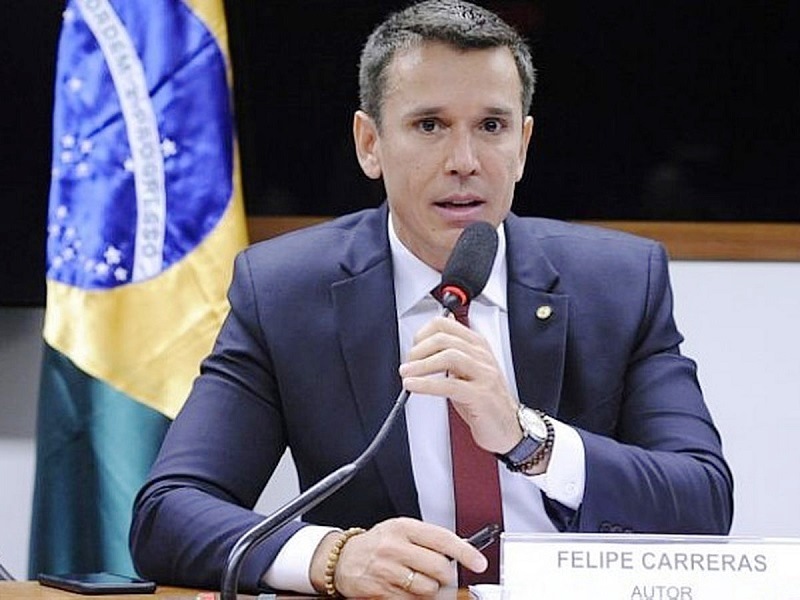

The year 2023 began with a new Government at the Federal level, and a series of doubts about the future of gaming regulation in Brazil. Although the new Administration is still in formation, some points are already certain, others develop despite Federal guidance, and, finally, there are those that still remain open, according to the still vague official pronouncements on the matter.


With regard to fixed odds sports betting (“Apostas de Quota Fixa”, AQFs) as a lottery modality, in December 2022, the legal deadline for its regulation at the Federal level expired. However, worth to remind that AQFs are already outside the illegality plan, remaining, at the Federal level, in the unregulated domain.


TAXATION, REGULATION AND JUDICIALIZATION
Regulatory inaction brings a minor impact on the system that has been employed by operators headquartered abroad, offering services to users located in Brazil. In criminal terms, there is no possibility of prosecuting providers because the practice is considered a criminal misdemeanor -and not a crime-, and thus restricted to practices in the national territory, not abroad (Criminal Misdemeanors Law, Article 3).
As websites are generally based overseas, there is no legal basis for pursuing criminal prosecution. On the other hand, regarding taxation, the Brazilian Federal Revenue modified, at the beginning of 2023, codes on lotteries, which now also include sports betting. The fact demonstrates, at least in theory, political willingness to make use of it by enacting a basic and necessary infrastructure for its future operation. In relation to other areas of law, such as consumer law and data protection, for example, a series of obligations must be respected, even without specific rules on the subject.
In terms of the development of a regulatory system, albeit decentralized, inertia regarding the regulation of AQFs at the Federal level does not communicate with a normative standstill within the State level. Since the paradigmatic decision of the STF, in 2020, which allowed States (and potentially Municipalities) to operate the same lottery modalities already authorized by the Union, it has opened the way for other federal entities, in the absence of federal regulation, to start operating AQFs.
Without a uniform and precise regulatory framework in relation to AQFs, it is possible to foresee a growing judicialization of the matter, to the extent that, until today, all tenders that sought to choose their operators ended up being suspended by court order and/or of the respective Audit Courts. Gradually, case-by-case parameters are being created, based on what the courts have decided. Piecemeal regulation is thus reinforced so future tenders can become adapted to what has been considered so far until regional operations of lotteries and AQFs can be massively provided.
Leading positions in material and formal aspects of AQFs there are respectively the state of Minas Gerais, which recently inaugurated a website allowing bets in this modality, through its lottery operator partner and the state of Paraíba, which published a decree, in 2023, dealing exclusively with AQFs.
Meanwhile, with regard to the regulation of AQFs by the Union, it is uncertain whether previous versions of the regulatory decree already submitted to the public formally or informally will be maintained or preserved by the new Government. What is known, so far, is that major articulators of the current political scenario have been in favor of regulation as a potential way to increase revenue, essential to subsidize a series of social programs and wage increases that the current Government has proposed to promote.


KEY ACTORS IN THE CONGRESS
These intentions have been strengthened, from the beginning of 2023, due to a series of complaints involving the integrity of the sport -football-, in a practice known as ‘match-fixing’, through which players from certain teams contributed to achieving a certain result combined with bettors who benefited from bets placed on those grounds. The practice has been subject to investigation by the Prosecution Office in several States, and the new Federal Administration, aware of the serious damages to the image of Brazilian football, said that it intends to shorten the period for regulation. This is so because, if regulated, AQFs will impose a series of compliance requirements that will facilitate the assessment of possible crimes and illegalities, such as those currently being investigated by Sports Justice. Betting operators are considerably interested in this moralization of the activity, since any infraction (especially in this format, between players and punters) tends, precisely, to raise losses not only to the credibility of the activity, but also financial ones.
In addition, as the downsizing of the public sector has not been the tendency of the new Federal Executive, and the increase in the tax burden on ordinary activities is always an unpopular measure, an alternative would be the prompt regulation of the AQF, which would be reverting to the collection of taxes and increased revenue for the new mandate.
In relation to the Regulatory Framework for Gambling in a broader sense, in particular the well-known PL 442/1991, already approved by the Chamber of Deputies and still awaiting consideration by the Federal Senate, the Executive branch does not have a prominent role, in this still intermediate stage of processing, compared to the position of the new members of the legislative houses. However, a great supporter of the bill, Rapporteur of the proposal in the Chamber, Deputy Felipe Carreras (PSB-PE), is part of the thematic transition team of the Federal Government in the area of tourism. It is expected, at least, a possibility of continuation of the project already elaborated, with potential amendments, since PT (Working Party, the party of the president Luiz Inácio ‘Lula’ da Silva) took a position against PL 442/91 in February 2022.
The presence of Deputy Carreras, as well as the President of the Joint Parliamentary Front for the Approval of the Regulatory Framework for Games, Deputy Bacelar, although in another transition team, may signal an important potential channel of communication on PL 442/91, whether for the purpose of demonstrating the benefits of regulation in economic and financial terms, or to disseminate and open dialogue with new members of the National Congress. Added to these figures are the re-elections of congressmen Arthur Lira and Rodrigo Pacheco as presidents of the Chamber of Deputies and of the Federal Senate, respectively, who have been favorable to the regulation of the gaming industry.
As March is always the official beginning of the year in Brazil, it is now time to observe the speed at which the vote on PL 442/1991 (now renumbered to PL 2.234/2022) will occur at the Federal Senate, since it has been waiting to be appreciated for one year already, and its respective -not less important- results. Let March begins for us to see.

